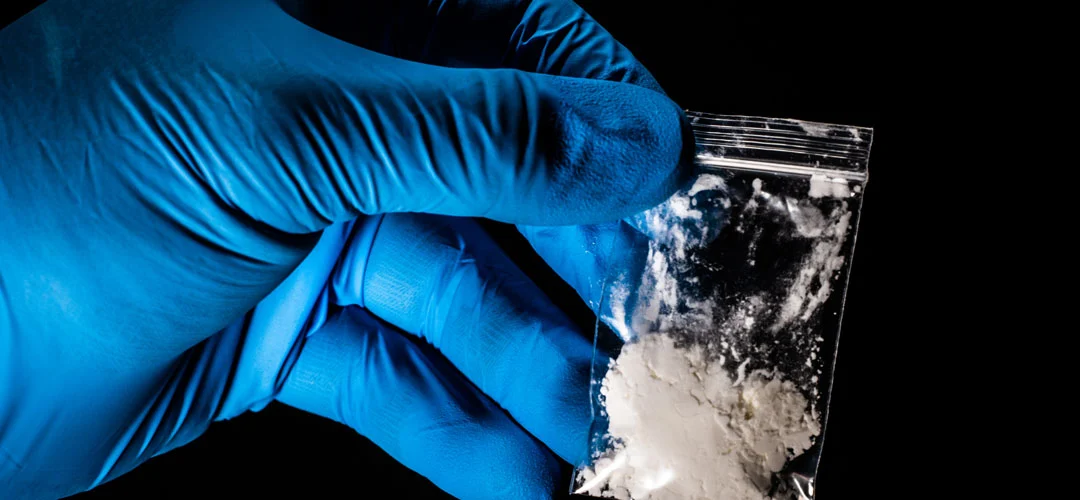Fentanyl Detox Orange County
Our Fentanyl Detox in Orange County
With the rise of illegal drugs like fentanyl, the US is in the midst of an opioid crisis. California is no exception to this crisis and is actually one of the hotbeds of fentanyl distribution in the country.
Since fentanyl is so prevalent in California, the state has stepped up addiction and prevention services for its citizens.
Looking for a fentanyl treatment center in California? You’re in good hands with South Shores, a industry leader with years of experience helping people just like you overcome this powerful opioid and get sober for good.
Read on to learn more about our fentanyl detox Orange County services and how South Shores Recovery offers the evidence based, proven programs you and your loved one need to overcome an opioid use disorder.
Fentanyl
Before you can understand the dangers of this drug, you have to understand what fentanyl is. Fentanyl is a synthetic and powerful opioid painkiller prescribed for severe pain.
While it can be found as a prescription drug for pain relief, it’s also a highly addictive drug and abuse can cause many serious side effects. Many FDA approved medications including this one have certain regulations and restrictions that prescribing doctors must follow due to the risks associated with long term use.
Fentanyl binds to the same opioid receptors in the brain as other opioid analgesics and causes a flood of dopamine, resulting in sedation and euphoria. Over time this can lead to physical and psychological dependence.
Overdoses and Risks of Fentanyl
This synthetic opioid is 50 to 100 times stronger than morphine, making it very dangerous to take recreationally. And even more alarming, many people are using this drug without a prescription.
This means they’re getting it from independent sources that are unregulated and don’t follow certain safety standards when making the drug. Many are even finding other illegal substances like meth, heroin, cocaine and others laced with fentanyl.
Fentanyl Abuse in California
According to the Center for Disease Control and Prevention (CDC), 75% of the 91,799 drug overdose deaths in the US in 2020 involved an opioid. Many of those involved fentanyl.
Fentanyl is a big problem in California. In 2021 the state had nearly 6,000 opioid related overdose deaths and fentanyl was involved in over 80% of those deaths.
In 2020 there were over 10,000 fentanyl related emergency department visits in California. Fentanyl is now the leading cause of death for people under 25 in California and Black and Latino Californians are disproportionately affected by fentanyl use.
The rise of fentanyl abuse is due to several factors including increased availability, potency and deadly interaction with other drugs. Fentanyl is often mixed with other drugs like heroin or cocaine without the user’s knowledge. This can cause an overdose even in people who have used those drugs before with no issues.
What are the Side Effects of Fentanyl Abuse
As with any drug abuse, using fentanyl can be harmful even with just one use. Because experimenting with this drug can go south so fast, it’s good to know the unpleasant side effects that can happen from fentanyl use.
Short Term Side Effects
One pill can kill. Fentanyl is so potent and often mixed with other dangerous drugs, many people experience life threatening side effects after taking it just once.
Some of the short term side effects of fentanyl use include:
- Sedation
- Confusion
- Drowsiness
- Dizziness
- Nausea and vomiting
- Urinary retention
- Pupillary constriction
- Respiratory depression
Long Term Side Effects
Using fentanyl for short periods of time can be serious, using it long term can be even more severe. In addition to the short term side effects, long term fentanyl use can cause:
- Heart problems: Fentanyl can increase the risk of heart attack, heart failure and other heart complications.
- Respiratory problems: Fentanyl can damage the lungs and cause respiratory issues like pneumonia.
- Immune system problems: Fentanyl can suppress the immune system and increase the risk of infections.
- Mental health problems: Fentanyl use can cause depression, anxiety and other mental health issues which can also fuel its use.
Fentanyl Overdose Signs and Symptoms
Fentanyl is much more potent than heroin or morphine. A small amount can be fatal especially if mixed with other drugs or alcohol. Fentanyl overdose is a life threatening condition and needs immediate medical attention to be treated.
Some of the common signs and symptoms of fentanyl overdose include:
- Respiratory depression
- Confusion and drowsiness
- Difficulty thinking clearly
- Nausea and vomiting
- Constipation
- Cold and clammy skin
- Loss of consciousness
If you or someone else is experiencing any of these symptoms after using an opioid like fentanyl, call 911 now. Without immediate and proper treatment these symptoms can become life threatening.
What are the Signs of Fentanyl Use?
With the problem of fentanyl not just in California but nationwide, it’s good to know how to recognize if you or a loved one is struggling with fentanyl use. The signs of fentanyl use can vary from person to person but some of the common ones include:
- Changes in appearance: weight loss or gain, poor hygiene, frequent bruising or injuries.
- Changes in finances: increased debt, can’t make ends meet, selling belongings to support drug use.
- Changes in relationships: withdrawal from friends and family, problems at work or school, legal problems.
- Changes in mood: anxiety or depression.
- Changes in personality or behavior: becoming withdrawn or isolated, neglecting responsibilities or engaging in risky behaviors.
- Physical tolerance: needing to use more fentanyl to get the same high.
- Fentanyl use compulsions and cravings.
If you or someone you know is showing any of these fentanyl addiction signs, get help now. This is a serious condition but it can be treated. At South Shores Recovery we have various treatment options to fit all your recovery needs.
Why Fentanyl Addiction Treatment
Many people struggling with drug and alcohol addiction will need to go to treatment to overcome their addiction. Especially those who are physically dependent on fentanyl as there are many risks associated with this drug.
Going to treatment can seem intimidating but there are many benefits to a fentanyl addiction treatment program including:
- Reduced risk of overdose: Fentanyl overdose is the leading cause of death in the US. Treatment can help you reduce your risk of overdose by teaching you how to manage your cravings and use safely.
- Better physical and mental health: Fentanyl use can wreak havoc on your physical and mental health. Treatment can help you get healthier by addressing the emotional and physical symptoms of addiction.
- Higher chance of long term recovery: Fentanyl addiction is a chronic disease but treatment can help you achieve long term recovery. With the right treatment you can learn to live a healthy and happy life drug free.
At South Shores Recovery our fentanyl rehab program uses a wide range of evidence based treatments and holistic options to help you safely and comfortably get through the fentanyl recovery process.
Medical Detox for Withdrawal Symptoms
When someone who is physically dependent on fentanyl stops using the drug they may experience severe opioid withdrawal symptoms such as nausea, vomiting, diarrhea, muscle aches and anxiety.
Because fentanyl withdrawal symptoms are so severe the first step in your treatment will be a medically supervised detox. Detox is the process of getting fentanyl out of your body.
It’s important to have regular supervision and support during detox and our medical detox center is here to help you get through the early stages of recovery.
During this time you will have constant medical supervision while you are experiencing withdrawal symptoms to help manage and even prevent many of these symptoms from happening. You will also receive medications, nutritional counseling and emotional support.
South Shores Recovery Fentanyl Treatment
Our treatment doesn’t stop at medical detox. While this is important to building a strong foundation for your recovery it’s just the first step on your journey to sobriety. Our facility has various treatment options to guide you through every step of the process and help you stay in long term recovery.
Some of the programs and services we offer:
Inpatient and Outpatient
Our inpatient rehab and outpatient care services are to provide support and structure for those recovering from fentanyl addiction. Our residential program allows you to live on site while in treatment so you can focus on your recovery.
If you need more flexibility you can also participate in our standard outpatient, intensive outpatient or partial hospitalization program. These options give you the support you need while you can continue your daily routine and responsibilities.
Whichever option you choose you can be sure you will get the care and tools you need to stop using fentanyl and get long term recovery.
Medication-Assisted Treatment
Medication-assisted treatment (MAT) combines medication with counseling and behavioral therapy to treat opioid addiction. MAT can be very effective in helping people achieve and maintain long term sobriety. Some of the medications we use in our program include:
- Methadone: This is a full opioid agonist that binds to and activates opioid receptors which can help manage withdrawal symptoms and cravings.
- Buprenorphine: This is an opioid partial agonist that binds to and partially activates opioid receptors which can help manage withdrawal symptoms and cravings.
- Naloxone: This medication blocks opioid receptors in the brain and can be used to reverse an opioid overdose.
Behavioral Therapies
Counseling and therapy can help you understand your addiction and develop coping skills for managing your cravings. Our facility offers many evidence based and holistic therapies to help you work through your substance abuse including:
- Individual and group therapy
- Family counseling
- Recovery support groups
- Behavioral therapies
- Art and music therapy
Get Fentanyl Free at South Shores Now!
If you are looking for opioid detox in Orange County you don’t have to look any further than South Shores Recovery. We have all the treatment options and resources you need to get long term recovery from fentanyl.
If you or someone you know is struggling with fentanyl addiction please know you are not alone. Help is available. Contact our treatment providers today to find out which of our treatment options is right for you.
Fentanyl Detox Orange County FAQs
Can I Die From Using Fentanyl?
Yes you can die from using fentanyl. It’s a synthetic opioid 50-100 times more potent than morphine. Even a small amount can be fatal especially if mixed with other drugs or alcohol.
If you’re thinking of using fentanyl please know it’s very dangerous and can kill you. There are many other ways to get help with pain or addiction and no need to take this risk.
Can I Stop Using Fentanyl On My Own?
It’s not recommended to stop using fentanyl on your own. Fentanyl is a powerful opioid and withdrawal from it can be very uncomfortable and even dangerous. If you’re trying to stop using fentanyl please do so under the care of our treatment team.
Instead of quitting cold turkey and risking your health our team of medical professionals can help you develop a tapering plan and monitor your health during the withdrawal process.
How Long Does Fentanyl Detox Take?
The length of time it takes to complete fentanyl detox will depend on the severity of your addiction, if you have any co-occurring medical or mental health conditions and how committed you are to treatment.
Generally it will take about a week but some people may experience symptoms for up to months after stopping use. Because of the unpredictability of this timeline it’s important to seek professional fentanyl withdrawal treatment to get through this process safely.
Medical Reviewer
Katrina Harris
LMFT, Clinical Visionary Officer
Read Bio
Author
Christina Tchamanian
Program Director
Read Bio
Contact us







